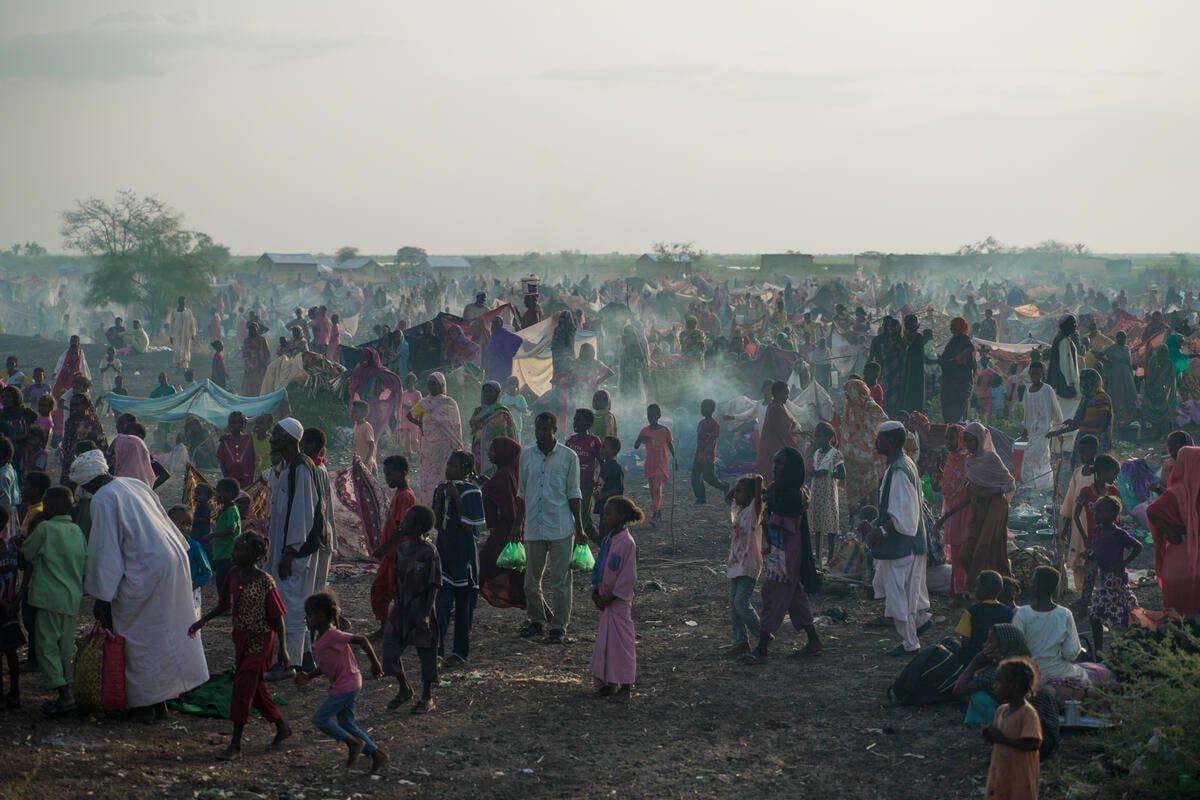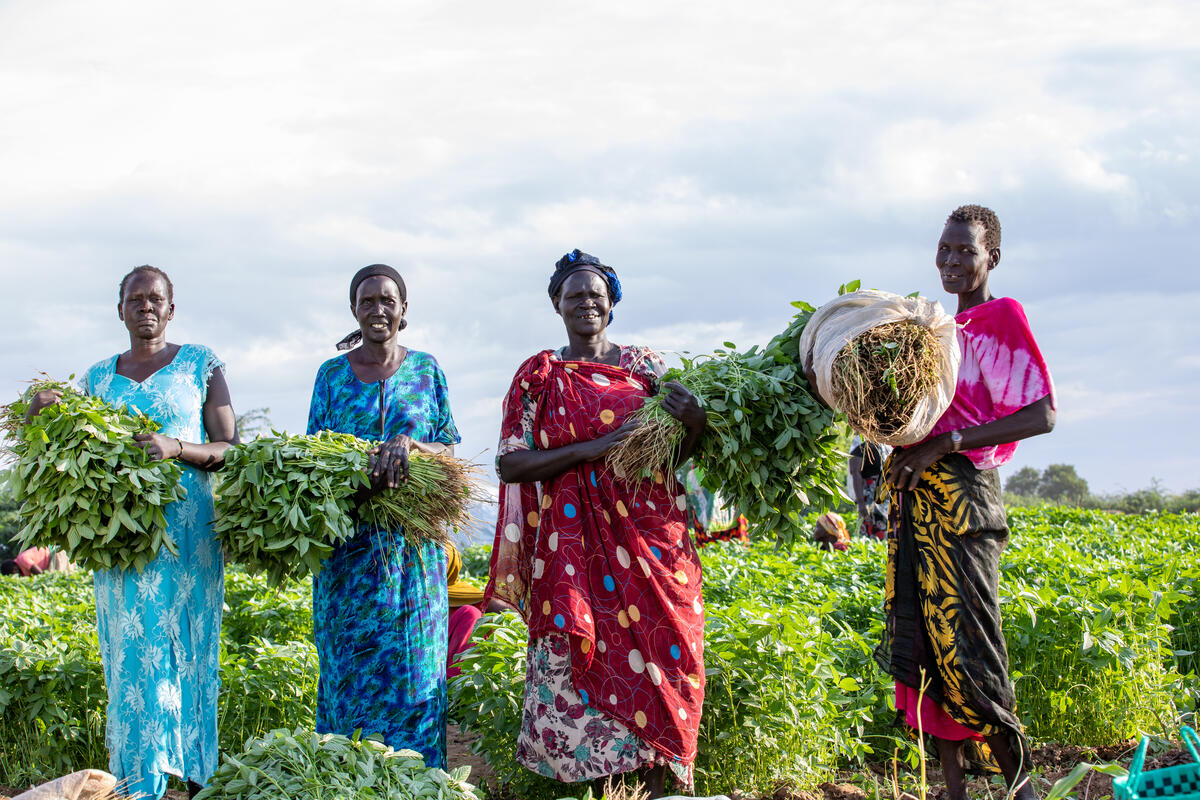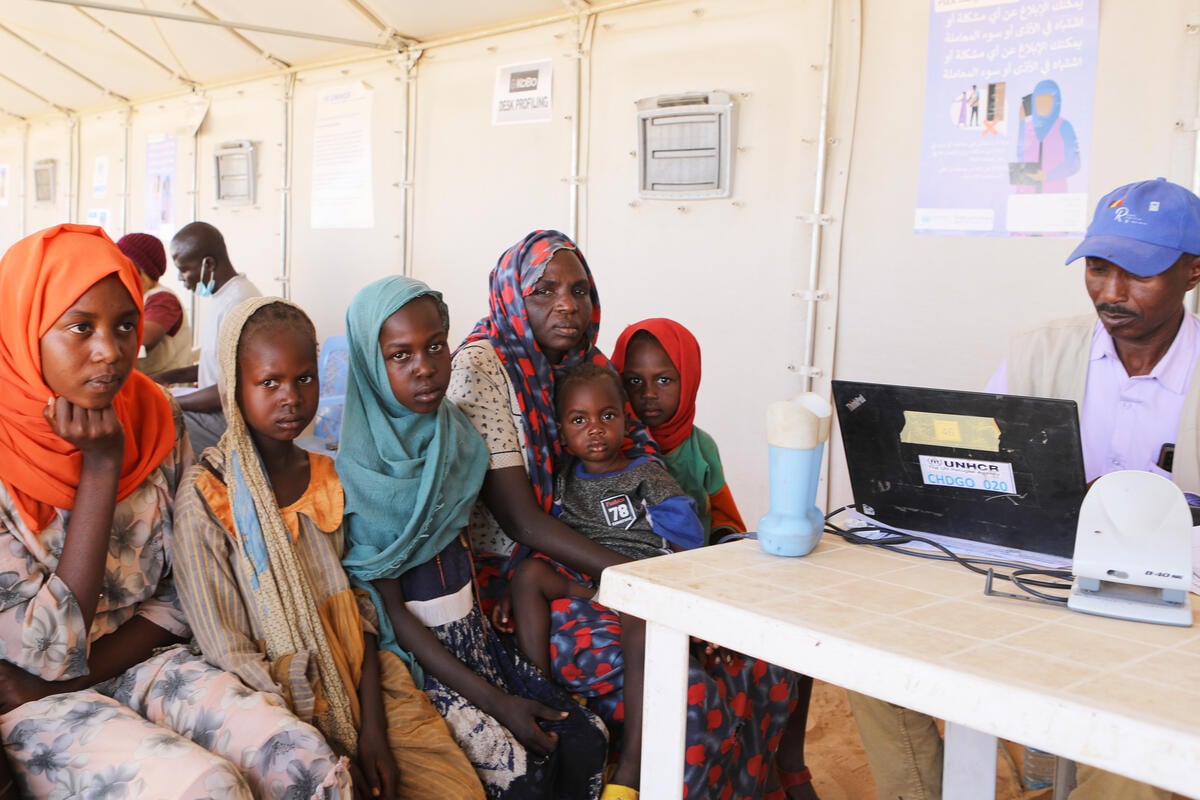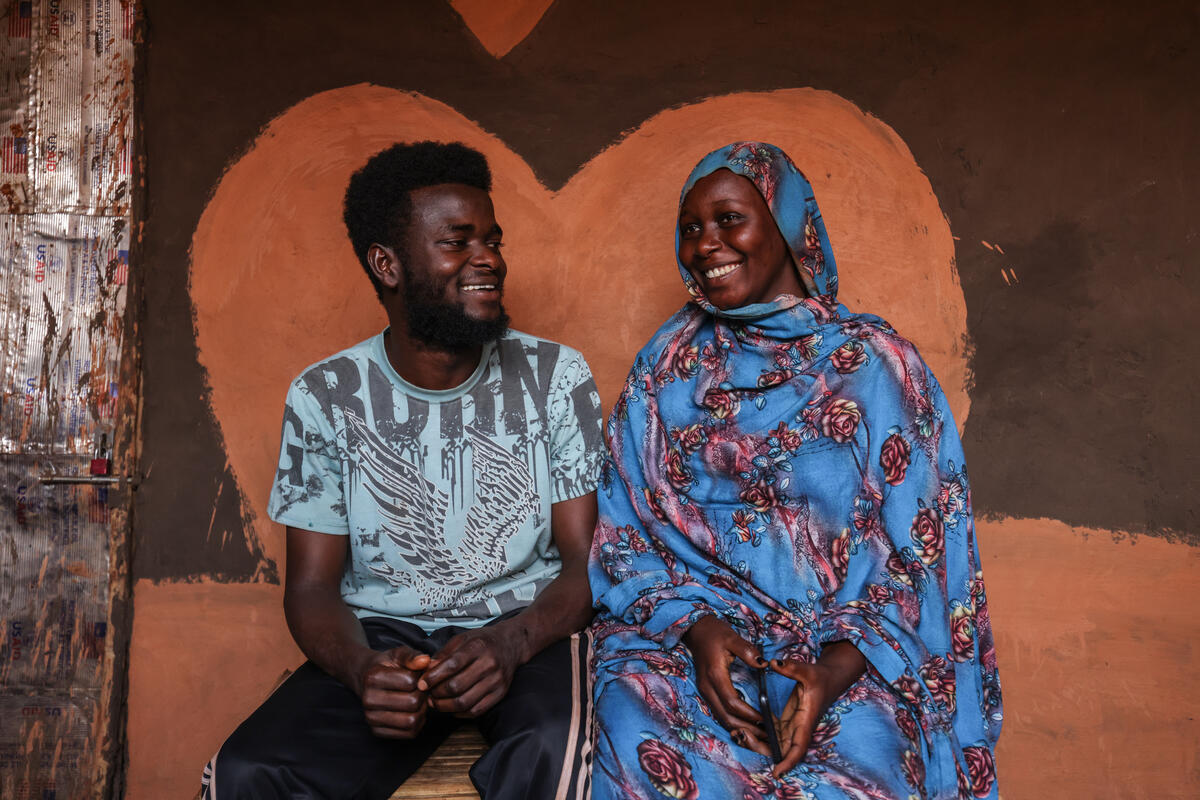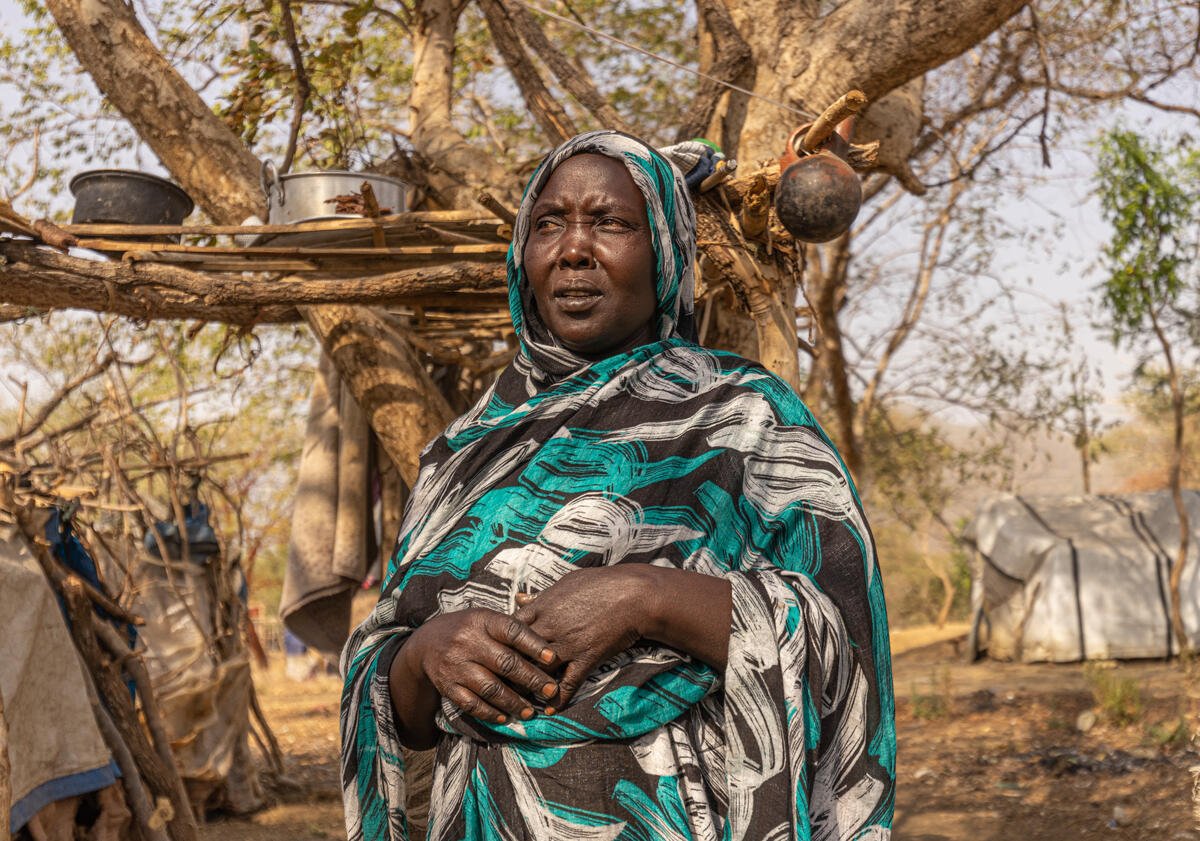Back on track: Journey "home" to South Sudan
Back on track: Journey "home" to South Sudan

KHARTOUM, Sudan, March 5 (UNHCR) - After months of living in limbo, some 1,400 southern Sudanese recently started the long journey to South Sudan on board the year's first southbound train from the Sudan capital of Khartoum.
Frisella Achul, a 38-year-old mother of three, was among the crowd that gathered anxiously at Soba train station in eastern Khartoum last Thursday. As dust swirled around the station, people of all ages loaded their luggage onto the passenger cars or waited in long lines to fill up with water for the ride to Wau in South Sudan.
"I hope this train does not get delayed again," said Frisella. "People are frustrated and angry about the continuous delays and can no longer live like this, hanging between the sky and the earth with nothing to protect themselves."
While many other families struggled with luggage, Frisella was travelling light and alone. She had sold most of her belongings to help her make ends meet in the capital and she had left her children behind to complete the academic year before joining her in the south.
Born and raised in Khartoum, two are at university and one in secondary school. Frisella was also born in the city to parents originally from the south. She has never seen her ancestral village in Wau, but decided to pack her bags to go "home" soon after South Sudan seceded from Sudan last July.
However, the transport capacity in Khartoum could not cope with the masses of people suddenly wanting to head south, causing thousands to become stranded in open-air departure points around the capital. "I have been living in a bad situation in the open since I left my house to wait in this empty space [close to the station] to take the train," said Frisella. "I no longer work for an NGO and have had no income for the past months since the separation of the south."
As co-chairs of the Returns Sector, the UN refugee agency and the International Organization for Migration (IOM) have stepped in to help coordinate the movement of the stranded southerners. Among the most vulnerable, 319 people have so far been flown to South Sudan. And with the resumption of railway services to Wau in South Sudan last week, it is expected that some 4,500 others will go south by train this month.
A recent agreement between Sudan and South Sudan should pave the way for larger-scale movements of people from the north to the south. But there are still issues to be ironed out, including funding, logistics and security arrangements along the way.
Meanwhile, Thursday's train was dogged by problems. The departure was delayed by four hours, then the 60-year-old train stopped outside Khartoum for another few hours. A pregnant woman lost her baby while another was on the verge of delivery, watched over by three doctors, a midwife and a pharmacist on board.
The train will take at least two weeks to reach Wau, if it does not break down en route. Despite assurances that the government is monitoring safety along the way, Frisella worried about the safety of passengers, especially the children.
Understandably, she has mixed feelings about leaving Sudan. "Although I have lived in Khartoum all my life, have good memories and strong relations with the community, I do not feel that I belong in the north."
She has relatives in South Sudan, but does not own land or property and will likely live in a temporary camp for internally displaced people. Nonetheless, she said, "I feel I am going back to my country," before adding: "We are not seen as nationals by the north, but we are also seen as foreigners in the south by people who have lived there longer than us. I am worried we will face the same feeling of alienation as in the north."
While people who choose to head south struggle with identity crises like Frisella's, those who remain in the north will face a legal limbo in the weeks to come. There are an estimated 500,000 southern Sudanese living in Sudan today whose status will come into question in April, when the deadline for regularizing residency status lapses nine months after independence.
UNHCR and IOM have been advocating with the governments of Sudan and South Sudan to provide clear information and procedures on how south Sudanese can remain in the north if they wish to do so.
By Nahla Abu-Eissa in Khartoum, Sudan


